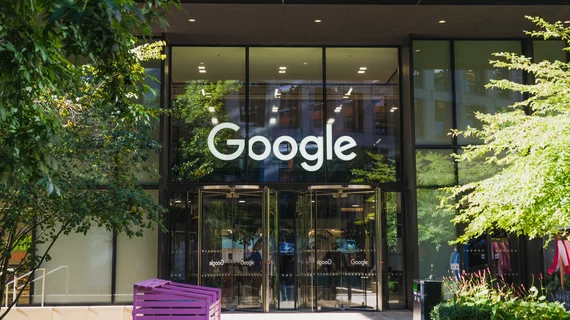Google ups activity in 4 reaches of healthcare AI
Along with expanding research into large-language models to rival OpenAI’s ChatGPC, the search-engine king is working on AI for improving maternal care, ultrasound access and tuberculosis screening.
Google announced the concentrations March 14 in an update posted by Greg Corrado, PhD, the company’s head of health AI, during its annual health event, the Check Up with Google Health.
“We’ve taken a ‘move slow and test things’ approach to prove efficacy, equity, helpfulness and safety above all,” Corrado writes.
In healthcare, he adds, “there is enormous potential for AI to augment diagnostic and treatment planning processes, especially through partnerships to help bring high-quality care to communities that need it most.”
Here’s what Corrado says Google is doing in each of the four healthcare AI realms it’s spotlighting at the Check Up 2023.
Medical large-language models. Google is investing R&D dollars to design applications that maintain the “utmost focus on safety, equity and bias to protect patient well-being,” Corrado shares.
Google’s latest chatbot aimed at informing providers as well as patients is Med-PaLM 2. As the name implies, it’s an updated iteration of Med-PaLM, which last year topped 60% on a quiz styled like a medical-licensing exam.
Corrado says Med-PaLM 2 has upped the ante, consistently supplying correct answers at an 85% clip.
“While this is exciting progress, there’s still a lot of work to be done to make sure this technology can work in real-world settings,” Corrado writes. “We look forward to working with researchers and the global medical community to close [the] gaps [we’ve identified] and understand how this technology can help improve health delivery.”
AI-assisted ultrasound. Google is partnering with Kenya-based Jacaranda Health to train sub-Saharan healthcare workers in the use of maternal-fetal sonography for at-risk women and preborn babies. Concurrently the companies are developing AI tools to support point-of-care ultrasound (POCUS) for this population.
Meanwhile Google is collaborating with a hospital in Taiwan to bring AI-aided breast cancer screenings to Taiwanese women, including those with dense breast tissue, Corrado reports.
“In recent years, sensor technology has evolved to make ultrasound devices more affordable and portable, but many low-resource areas have a shortage of ultrasound specialists,” he points out. “To help bridge this divide, we’re building AI models that can help simplify acquiring and interpreting ultrasound images to identify important information like gestational age in expecting mothers and early detection of breast cancer.”
AI for cancer treatment planning. Having worked with Mayo Clinic on bettering radiation therapy for several years, Google is announcing the partnership’s advances using AI to streamline the intervention’s most labor-intensive step: contouring. This is where physicians may spend hours delineating healthy tissue from tumors on CT scans, the goal being to irradiate every cancerous cell while leaving as much surrounding tissue untouched as possible.
“We’ll soon publish research about the findings of our study and the radiotherapy model we developed,” Corrado writes. “As of today, we’re formalizing our agreement with Mayo Clinic to explore further research, model development and commercialization.”
AI-aided tuberculosis screening. Citing World Health Organization statistics showing more than 25% of global TB mortality localized in resource-poor parts of Africa, Corrado notes Google’s work with on-the-ground healthcare workers as well as tech-forward organizations like the nonprofit Right to Care.
Google and partners are working to “make AI-powered TB screenings widely available across sub-Saharan Africa,” Corrado reports. “Our partners have committed to donating 100,000 free AI-powered TB screenings during the collaboration to help with early detection and treatment of TB and reduce the spread of this disease.”
Corrado’s full post is here, and Google has posted an hourlong video of the 2023 Check Up.

